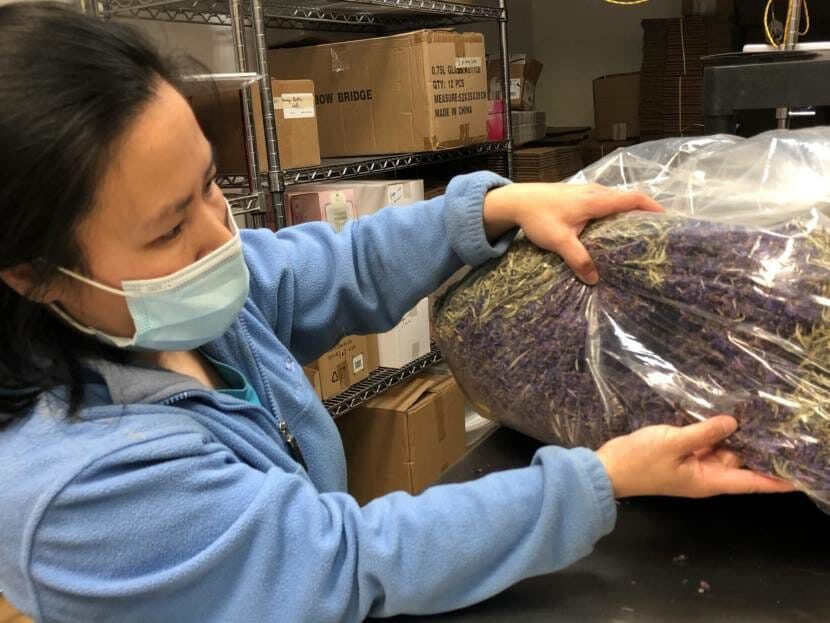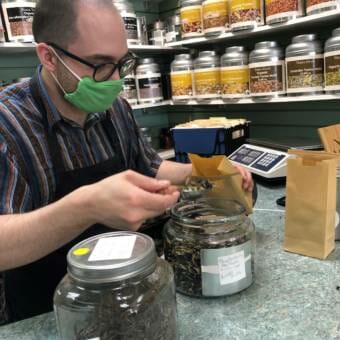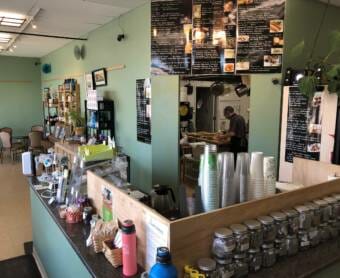
Jenny Tse grew up in Fairbanks drinking black coffee.
It’s not what you would expect from a world-class tea connoisseur who’s behind Alaska’s first tea farm, which is getting started this week outside of Fairbanks.
Tse is an international award-winning tea expert, consulted by artisanal growers in Hawaii, India and China. She runs the leading tea manufacturing company in Alaska. Now she’s starting the only tea farm.
“I want people to know that tea in Alaska could be grown, be sustainable — and we can have amazing products here in the state,” Tse said.

She came to the idea after 14 years as the proprietor of Sipping Streams, an artisanal tea store on the west side of Fairbanks.
“We do all our own packaging, and labeling and blending. Most people don’t realize we are the leading tea manufacturer in the state,” she said.
She has a large bag of dried fireweed blossoms, cranberries and tea leaves she shows visitors. It’s that variety which helped cement her reputation.
“Hand-blending was the first international award we’ve ever won, with local fireweed and lowbush cranberries,” she said.
She built a commercial-grade dehydrator to dry locally-sourced ingredients, which she keeps in the back at Sipping Streams.
“This is like a high-demand but limited amount because it’s wild-harvested and has to be hand-done,” she said.
Tse didn’t discover tea until she was a student in Idaho working on her athletic training and education degrees. She needed to save money.
“I started switching, because it was the cheapest thing on the menu,” she said.
She returned to Alaska to work as a trainer and physical therapist, then later as a high school math teacher. But she continued to research tea. She learned it could be transformative, she said.
“When I worked in physical therapy, people would tell me their stories about tea: Having it in the South, sweet tea, ‘Oh, I am from Arkansas, blah blah blah,’” she said. “I’m like, ‘There’s something to this.’”
She started teaching tea classes, and eventually opened Sipping Streams Tea Company in Fairbanks. That got her to travel to tea farms in China and India.

(Robyne/KUAC)
She’s literally written the book on tea since then. “The Essence of Tea: The Transformational Journey of a Tea Connoisseur” became a bestseller on Amazon.
During the pandemic, Tse also started a podcast with interviews with international experts. She started a YouTube channel to reach customers who couldn’t come into the shop. And she continued her online tea certification program with students across the country and in the UK.
She sent each student a small tea plant to grow indoors. That sparked the idea of growing tea in Alaska.
“It’s got to be in soil. and I knew a lot of things about what the tea plant needed. It needed warmth, it needed humidity, it can withstand snow, but not 30 below. So, where in Alaska could you do that?” she said.
She thought of Chena Hot Springs and Bernie Karl, the entrepreneur who pioneered sustainable energy projects and year-round food production in geothermally heated greenhouses.
“I just asked him if I could use his greenhouse. He said, ‘Here, 45 will fit in here,’ because he has the gardening experience. He’s like, ‘You need to order 45 plants.’ I’m like, ‘Okay, order 45 plants,’” she said.
The camellia sinensis trees came from a farm in North Carolina. It was a little nerve-wracking as they were trucked across the continent and flown to Alaska. Tse shared the tea plants’ journey on her Instagram account.
The trees arrived in Fairbanks during Memorial Day weekend.
“It’s a wonderful experiment to really show sustainability in Alaska, if we collaborate. If you try,” she said.
As the story of her geothermally heated tea farm gets out, it has attracted the attention of researchers.
“’Can we have your data?’ What data, I’m not a scientist! I just wanted these tea plants to grow and be amazing tea,” she said.
Tse is hoping to harvest the tea trees later this summer. She will be teaching a class on tea at the Fairbanks Summer Arts Festival in July at the tea farm at Chena Hot Springs.




